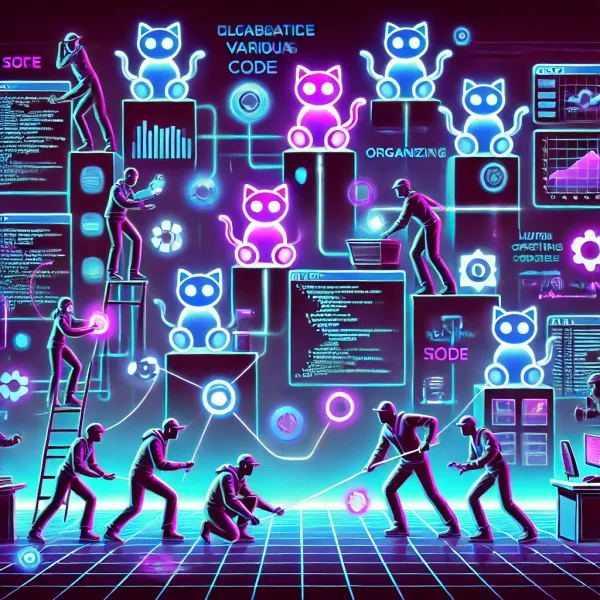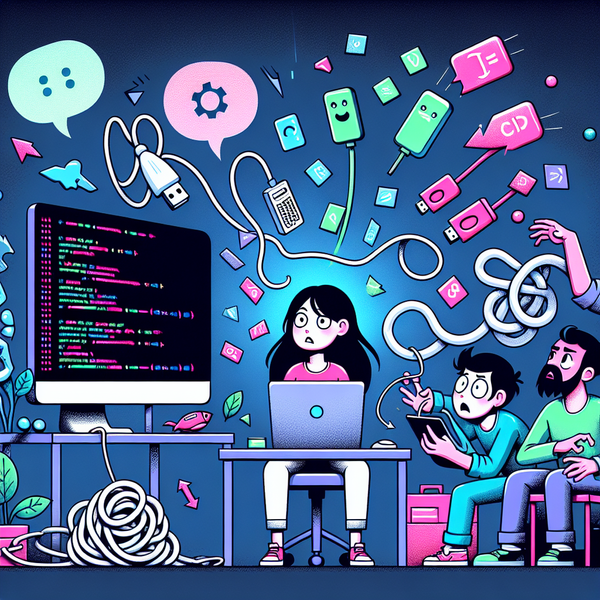Staying Flexible in Fast-Paced Dev Environments
Learn to stay flexible and adapt as a software engineer; combining you problem solving skills with emotional intelligence.

Change is the only constant for a software developer. Whether it's shifting project requirements, evolving technologies, or the endless barrage of new features, staying flexible is not just a nice-to-have; it's a necessity. If you can’t pivot on a dime, you might just find yourself stranded in the fast lane, while the rest of your team speeds ahead.
🔑 Key Takeaways 🔑
- Adaptability is your secret weapon against the chaos of rapid development.
- Continuous learning keeps you relevant and resourceful.
- Problem-solving isn’t just about fixing bugs; it's about thinking creatively and critically.
- Time management ensures you meet deadlines and juggle multiple tasks.
- Communication and collaboration are vital for team synergy.
- Emotional intelligence helps you manage stress and improve teamwork.
- Customer focus keeps you aligned with user needs and feedback.
Adaptability and Flexibility
Get this straight: adaptability isn’t just a soft skill; it’s your survival tool. In a fast-paced environment, things change quickly. You need to be able to pivot when the client suddenly decides that feature A is now feature B, or when the technology stack you’ve been using is replaced overnight. Think of adaptability as your ability to dance in the rain rather than waiting for the storm to pass.
Remember the last time you had to switch gears mid-project? Maybe you had your heart set on a specific tech stack, but suddenly, the team decides to try something new. Instead of panicking, embrace the change and dive into learning the new tech. You’ll not only survive but thrive!
Continuous Learning
If you’re not learning, you’re dying. In tech, that’s not hyperbole; it’s reality. Continuous learning is your ticket to staying relevant in a rapidly changing landscape. You need to be willing to research new areas or skills quickly. This shows not only resourcefulness but also a commitment to your craft.
Here’s how you can foster a mindset of continuous learning:
- Take Relevant Courses or Bootcamps: Engage in courses that keep you updated with the latest technologies.
- Pursue Internships: Gain hands-on experience that exposes you to various scenarios.
- Find a Mentor: A mentor can guide you through the fast-paced world of tech, helping you adapt to new challenges.
Problem-Solving and Critical Thinking
Let’s face it, problems are going to happen. Bugs will appear, deadlines will shift, and sometimes, the entire project will feel like a dumpster fire. The key is to develop strong problem-solving and critical thinking skills.
Here’s a quick formula to tackle problems effectively:
- Break it down: Take that monstrous issue and chop it into manageable pieces.
- Think creatively: Don’t be afraid to explore unconventional solutions.
- Assess options: Weigh the pros and cons of each possible solution.
Remember, it’s not about solving problems; it’s about preventing them in the first place. The more you sharpen these skills, the better equipped you’ll be to handle unexpected challenges.
Time Management
Deadlines are your new best friends. In a fast-paced environment, you can’t afford to lose track of time. Effective time management is critical to juggling multiple tasks and meeting deadlines.
Here’s how to master your time:
- Set realistic time estimates for your tasks.
- Prioritize your tasks: Focus on what truly matters.
- Use tools: Leverage time management software to keep you on track.
By honing your time management skills, you ensure that you’re not just busy, but productive.
Communication and Collaboration
You’re only as strong as your team. Strong communication and collaboration skills are essential for staying flexible. You need to articulate your ideas clearly and listen effectively to your teammates.
To improve your collaboration:
- Hold regular check-ins: Keep the lines of communication open.
- Be open to feedback: Use it as a tool for growth.
- Encourage team brainstorming: Collective ideas often lead to innovative solutions.

Emotional Intelligence and Self-Awareness
Stress is inevitable; how you handle it is what matters. Emotional intelligence helps you manage stress and improve collaboration, even when the pressure is on. Being self-aware allows you to recognize your emotions and how they impact others.
To build emotional intelligence:
- Practice mindfulness: Stay grounded in the present.
- Reflect on your emotions: Understand what triggers stress for you.
- Engage in active listening: This fosters better relationships with your team.
Customer Focus and Understanding User Needs
At the end of the day, it’s all about the user. Having a customer-focused mindset ensures you understand and adapt to user needs quickly.
Here’s how to keep your user at the forefront:
- Interpret user requirements accurately: Validate assumptions through testing.
- Gather feedback regularly: Make adjustments based on user input.
- Stay curious about user behavior: Understand their pain points to enhance your solutions.
Leadership and Mentoring
If you’re in a leadership role, your flexibility sets the tone for your team. It’s about guiding your team through changes and ensuring everyone is aligned with the new direction.
As a leader, focus on:
- Setting clear goals: Align everyone towards a common objective.
- Making strategic decisions: Be decisive yet adaptable.
- Empowering your team: Encourage them to grow and adapt alongside you.
Conclusion
Staying flexible in a fast-paced development environment is not just about being reactive; it’s about being proactive. By honing your adaptability, committing to continuous learning, mastering time management, and enhancing your communication skills, you’ll not only survive the whirlwind of development but thrive in it.
So, roll up your sleeves, embrace the chaos, and let’s get to work. The tech world isn’t waiting for anyone, and neither should you! Learning to thrive in ambiguity and bouncing back with resilience are your best friends in this journey. Stay ahead of changing industry trends and embrace career flexibility as you navigate through the landscape of innovation vs. stability.




